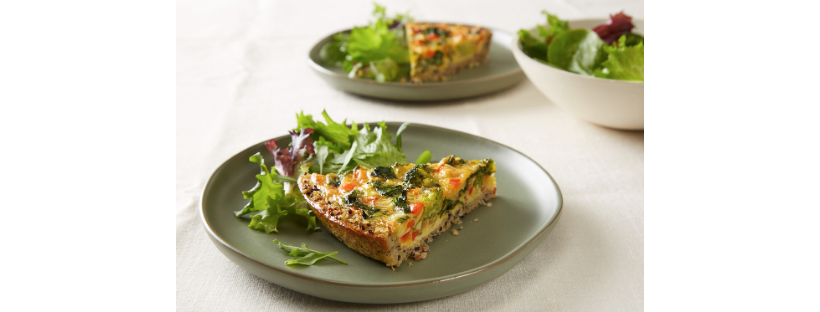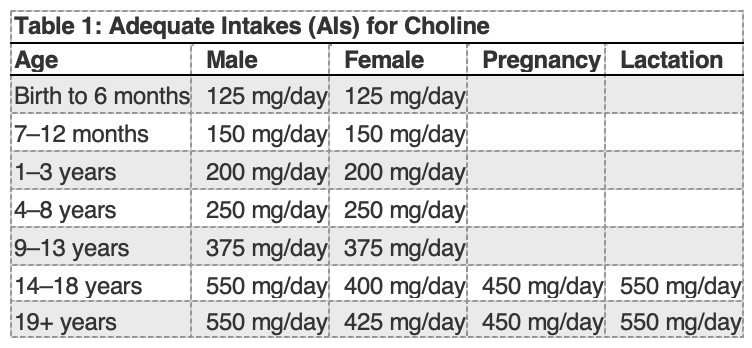Choline Throughout the Life-Span

By: Katie Hayes, RDN
WHY IS CHOLINEIMPORTANT?
Choline is an essential nutrient, meaning that we must consume adequate amounts in the diet to achieve optimal health. Unfortunately, most people do not consume enough choline. In fact, more than 90% of Americans (including approximately 90% of pregnant women) fail to meet the adequate intake.1 The Dietary Guidelines Advisory Committee has classified choline as a nutrient that poses special challenges for Americans due to underconsumption and encouraged eggs for pregnant women, as a complementary food for babies and toddlers, and for pre-teens and adolescents.2 Many foods offer choline in small amounts, however, only a few foods are significant choline sources. Furthermore, most multivitamin supplements contain little, if any, choline. Fortunately, eggs are convenient, affordable, accessible, and an excellent source of choline.
Beginning in fetal development, Choline is critical to goodhealth and remains essential throughout the lifespan. This nutrient isimportant in many ways.
- During pregnancy, choline helps the babys brainand spinal cord develop properly and supports brain health throughout life.
- Infants and young children need choline forcontinued brain development and health.
- Cholineis part of a neurotransmitter called acetylcholine, which is important formuscle control, memory and mood.3
- Choline is also important for the support of membranesthat surround your cells, the transportation of fats throughout the body andfor liver health.
- New research is exploring how choline throughoutlife may have lasting effects on cognition and prevention of cognitive decline.4
HOW MUCH CHOLINE DOWE NEED?
The amount of choline an individual needs depends on many things, including age, gender and stage of life. Table 1 lists the current Adequate Intakes (AIs) for choline.3

WHAT FOODS HAVE CHOLINE?
People of all ages need adequate choline for good health, but very few consume enough through food and supplements. While many foods contain some choline, only a handful of foods are considered good or excellent sources. Fortunately, two large eggs (about 300mg of choline) contain more than half of the recommended intake for pregnant women and can help them meet their needs. The table below lists food sources of choline.2

CHOLINE & COGNITION
Choline playsa role in early brain development during pregnancy and infancy. Thereis evidence thatinfants exposed to higher levels of maternal choline (930 mg/day) during thethird trimester have improved information processing speed, an indicator of cognitivefunction,4,5 during the first year of life.
The AmericanMedical Association (AMA) House of Delegates recommended the addition ofcholine to prenatal vitamins because of its essentiality in promoting cognitivedevelopment of the offspring.6 This recommendation from AMAhighlights the increased recognition of choline as a nutrient of concern. The2015-2020 Dietary Guidelines for Americans (DGAs) also list choline as anutrient under consumed by most Americans. The DGAs recommend individuals shiftto healthier eating patterns to help meet nutrient needs, including choline.7
Interested inmore information about choline?
- Read:Choline The Underconsumed and UnderappreciatedEssential Nutrient
- Handout: ImportantNutrients for Brain Health
- Watch:BrainHealth
- Read:Research News Choline, Lutein, and Cognition
- Watch:JessicaIvey on WBRC Fox 6 News
- Recipe: Sweet and Savory Breakfast Bowl by Mary Ellen Phipps, RD
- Watch:MindYour Eggs + Veggies: Nutrition for Cognitive Health webinar
References:
- Wallace TC, Fulgoni VL III. Assessment oftotal choline intakes in the United States. J Am Coll Nutr 2016, 35(2),108-112.
- National Institutes of Health. Fact Sheet forHealth Professionals: Choline. Version current 26 September 2018. ods.od.nih.gov/factsheets/Choline-HealthProfessional/AccessedJune 22, 2020.
- Wallace TC. A comprehensive review of eggs,choline, and lutein on cognition across the life-span. J Am Coll Nutr 2018,37(4), 269-285.
- Caudill MA, et al. Maternal cholinesupplementation during the third trimester of pregnancy improves infantinformation processing speed: a randomized, double-blind, controlled feedingstudy. FASEB J. 2018;32:2172-2180.
- AMA Wire. AMA backs global health experts incalling infertility a disease. https://wire.ama-assn.org/ama-news/ama-backs-global-health-experts-calling-infertility-disease
- U.S. Department of Health and Human Services and U.S. Department ofAgriculture. 2015 2020 Dietary Guidelines for Americans. 8th Edition.December 2015. Available athttp://health.gov/dietaryguidelines/2015/guidelines/.
